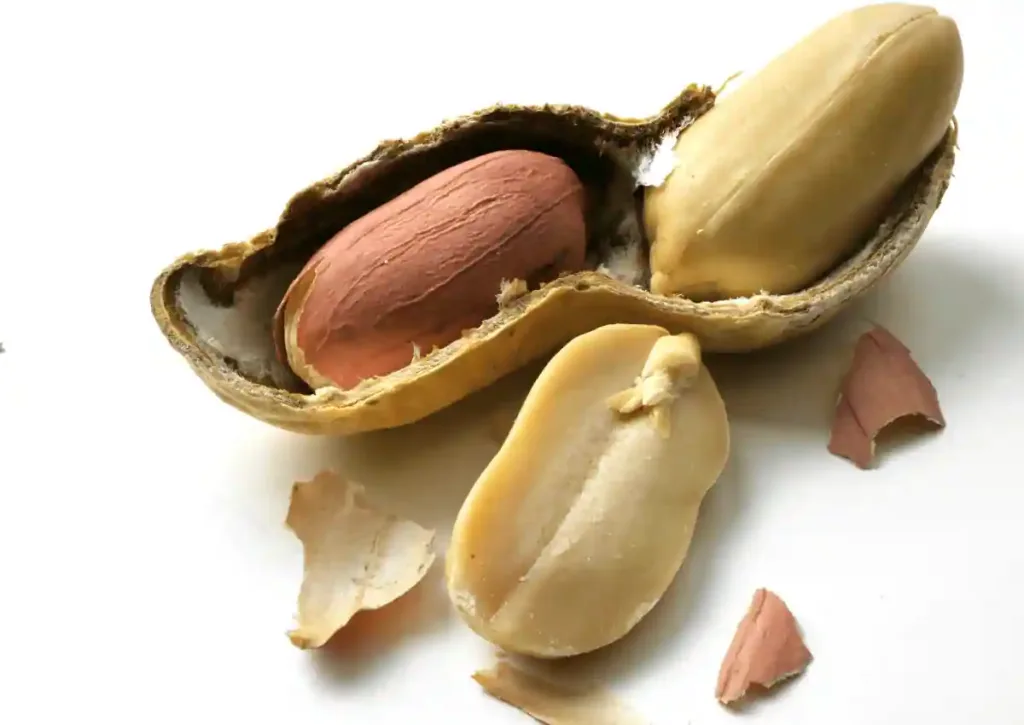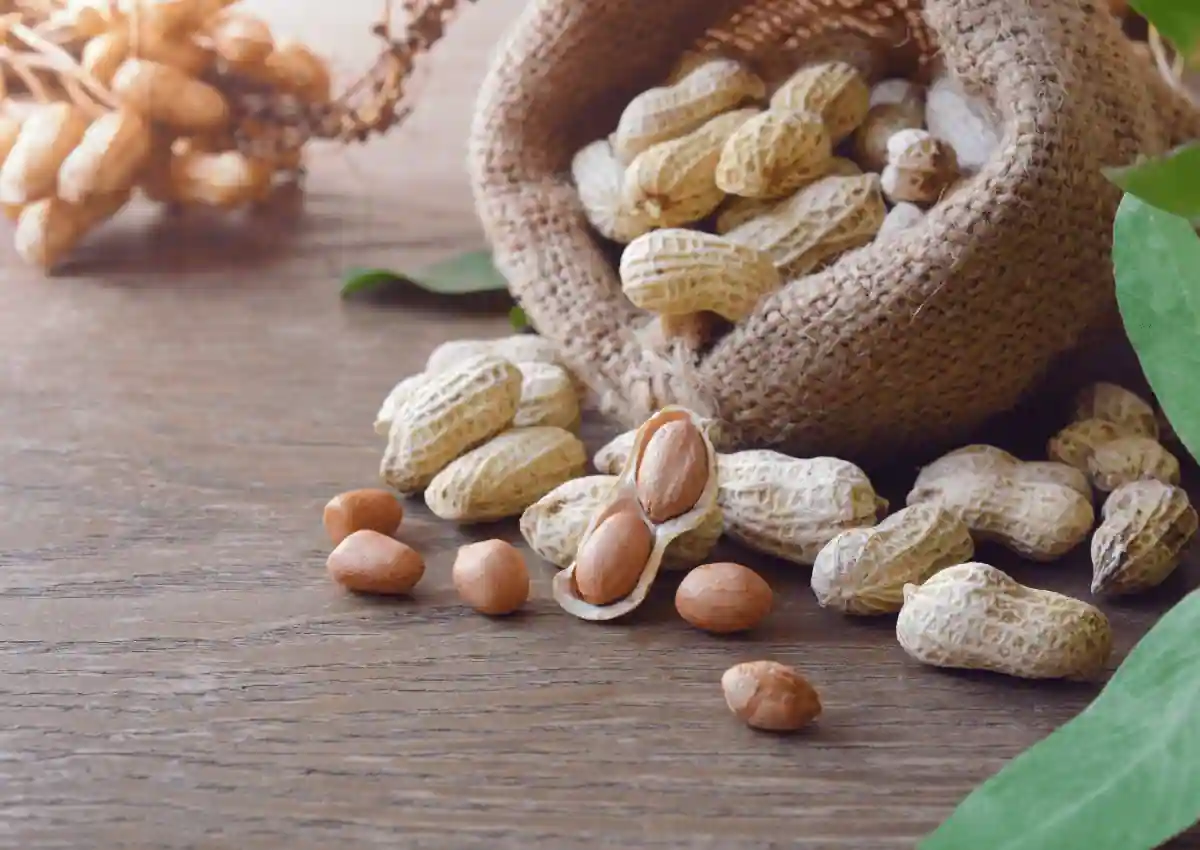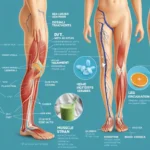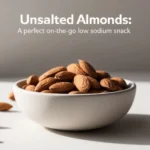Introduction-
Benefits and Side Effects of Peanuts- Peanuts, or groundnuts, are highly nutritious legumes with numerous health benefits. However, like any food, peanuts also have some potential side effects that individuals should be aware of. This document will explore both the positive and exemplary aspects of consuming peanuts.
Benefits and Side Effects of Peanuts-
Health Benefits of Peanuts
1. Heart Health-
Peanuts are rich in monounsaturated fats, such as oleic acid, which are associated with a reduced risk of heart disease. They also contain fiber, potassium, and magnesium, which benefit cardiovascular health.
2. Weight Management-
Peanuts are a good source of fiber and protein, which can help you maintain a healthy weight by making you feel fuller for longer. Additionally, peanuts contain resveratrol, an antioxidant that may have anti-inflammatory properties and aid in weight management.
3. Strong Bones-
Peanuts contain phosphorus and magnesium, essential nutrients for bone health. These minerals help strengthen bones and reduce the risk of osteoporosis. Peanuts are also a good source of vitamin K, which is essential for bone health.
4. Digestive Health-
Peanuts are a good source of fiber, which aids digestion by promoting regular bowel movements and reducing the risk of constipation. They also contain prebiotics, which support the growth of beneficial bacteria in the gut, promoting overall digestive health.
5. Immune System-
Peanuts are rich in antioxidants, such as vitamin E and selenium, which help protect the body against oxidative damage and inflammation. These antioxidants may also support the immune system and reduce the risk of infections.

Side Effects of Peanuts
While peanuts are generally considered safe for most people, some individuals may experience specific side effects:
1. Allergy-
Peanuts are a common allergen, and people allergic to peanuts should avoid consuming them. Symptoms may include hives, swelling, difficulty breathing, and anaphylaxis.
2. High Cholesterol-
Peanuts are high in fat, and excessive consumption of unhealthful fats can contribute to high cholesterol levels. Individuals with existing medical conditions or a family history of high cholesterol should consult with a healthcare professional before consuming peanuts.
3. Stomach Upset-
Some people may experience gastrointestinal issues such as bloating, gas, or indigestion after eating peanuts. It is usually due to the natural compounds in peanuts, such as oligosaccharides, which can be challenging to digest.
4. Overconsumption-
While peanuts are a healthy and nutritious snack, consuming excessive amounts can lead to weight gain and other health issues. Limiting your peanuts intake and opting for healthier alternatives, such as raw nuts, seeds, or fruits, is recommended.
Including Peanuts into Your Diet-
– Snacking Smart
Opt for unsalted or lightly salted peanuts as a healthier snacking option. Combine them with nuts and dried fruits for a satisfying and nutritious trail mix.
– Peanut Butter Power
Choose natural peanut butter without added sugars or hydrogenated oils. Spread it on whole-grain toast or use it as a versatile ingredient in smoothies for a protein boost.
– Culinary Creativity
Experiment with incorporating peanuts into various dishes, such as salads, stir-fries, and desserts. Their versatility adds a delightful twist to both sweet and savory recipes.
Uses of Peanuts-
Peanuts, also known as groundnuts, are a versatile legume with numerous uses in culinary and industrial applications. They are widely cultivated and consumed worldwide due to their nutritional benefits and delicious taste. Here are some standard services of peanuts:
1. Human Consumption –
People commonly use peanuts as a snack, often roasted or salted, to enhance flavor. Various dishes, such as peanut butter, peanut sauce, peanut cookies, and peanut brittle, are also used in multiple dishes. Peanuts are a good source of healthy fats, protein, and essential nutrients, making them a healthy and nutritious addition to a balanced diet.
2. Peanut Oil-
The oil extracted from peanuts is known for its distinct nutty flavor and various health benefits. People commonly use it in cooking, salad dressings, and skincare applications. Peanut oil has a high smoke point, making it suitable for high-temperature cooking methods such as stir-frying and deep-frying. It is also rich in monounsaturated fats, which are considered healthy fats.
3. Pet Food-
Peanuts are a valuable ingredient in pet food, especially for dogs. They provide a good source of protein and essential nutrients, promoting healthy growth and development. You can incorporate peanuts into dog food in various forms, such as peanut butter, peanut flour, or whole peanuts. Pet owners often use it as a source of protein for dogs with allergies to other meat products.
4. Industrial Applications-
Peanuts have a wide range of industrial applications, including producing peanut butter, peanut oil, and peanut flour. The food processing, confectionery, and cosmetic industries widely use these products. Industries utilize peanuts to produce biofuels, plastics, and adhesives. Their high oil content and nutritional value make them valuable commodities in various industrial processes.
5. Medicinal Uses-
The medicinal properties of peanuts have been utilized for centuries in traditional healing practices through their extracts. Their anti-inflammatory properties help reduce cholesterol levels when using their oil. Skincare products, such as creams and lotions, use peanut extracts for their anti-aging properties. Researchers are studying their potential benefits in treating neurodegenerative diseases.
Conclusion-
Peanuts offer numerous health benefits, such as promoting heart health, weight management, strong bones, digestive health, and immune function. However, it is essential to be aware of the potential side effects, such as allergies, high cholesterol, stomach upset, and overconsumption. If you have any concerns or questions about consuming peanuts, it is advisable to consult with a healthcare professional.
FAQs (Frequently Asked Questions)-Benefits and Side Effects of Peanuts-
A: Peanuts are absolutely rich in monounsaturated fats that promote cardiovascular well-being.
A: Yes, peanut allergies can manifest at any age, emphasizing the need for caution.
A: Aflatoxins, when present, can pose a risk to the liver; however, proper storage minimizes this risk.
A: Yes, peanuts’ fiber and protein content can contribute to a feeling of fullness, supporting weight management.
A: Symptoms include hives, digestive issues, and, in severe cases, anaphylaxis.
A: Unless allergic, peanuts can be a nutritious addition to a pregnant woman’s diet.
Hi there! I’m content writer and blogger. With over two years of experience, I’ve shared my passion for writing across various platforms. I firmly believe in the transformative power of words and look forward to sharing this journey with you. Enjoy my work!










